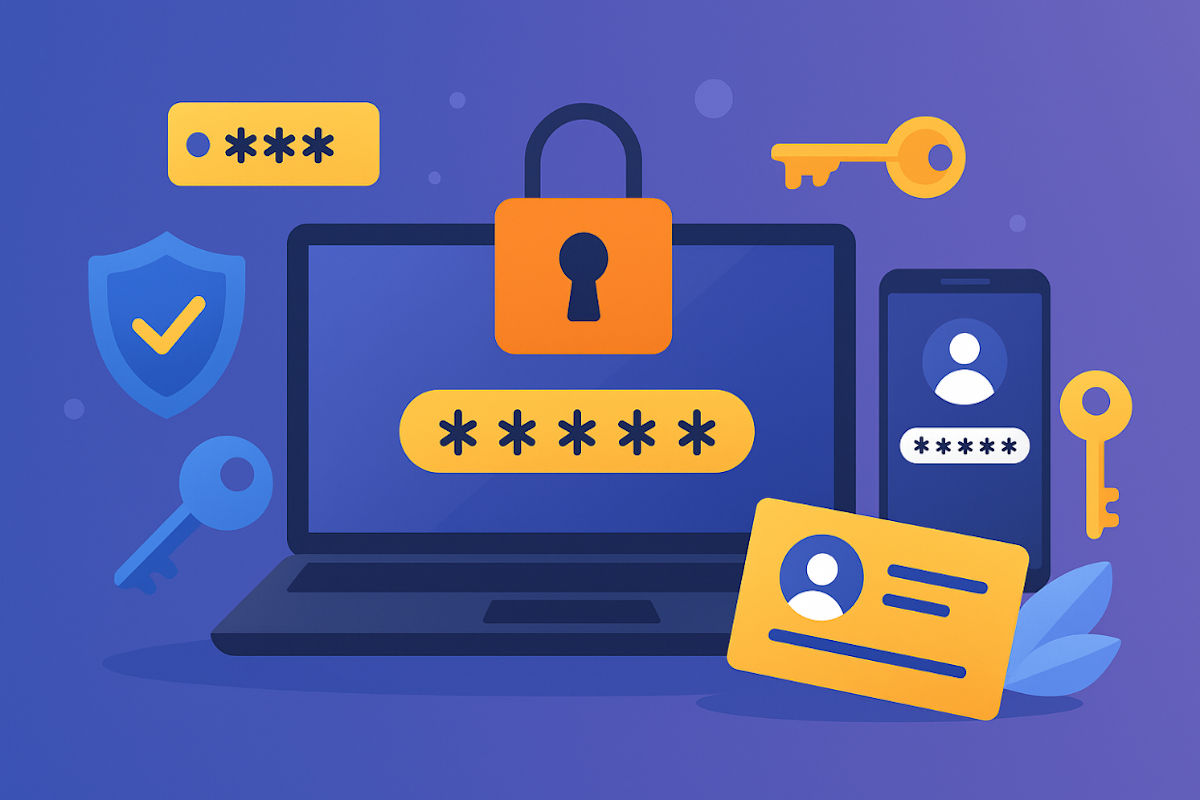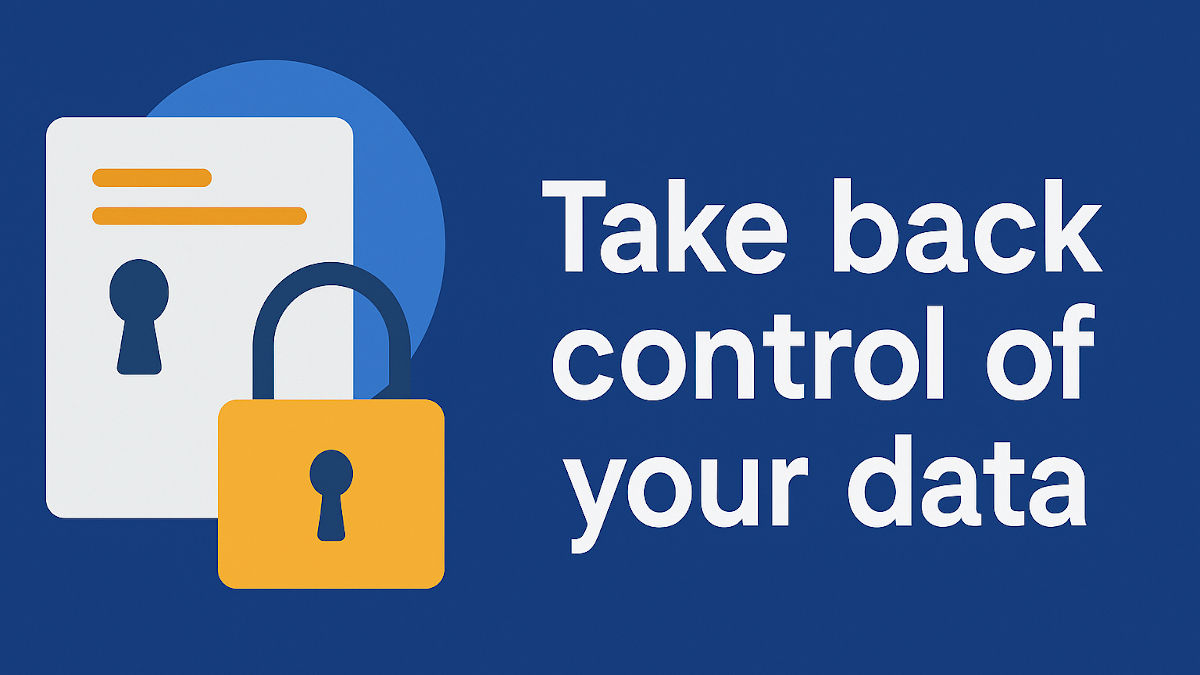Saving passwords in your browser is like handing your house key to a burglar. George, your AI host, explains why a password manager keeps you safe and covers TikTok’s takeover tweaks, how your 401(k) is funding U.S. spyware and new proof Mars had water.
Saving passwords in your browser? Stop that.

“Hi, Kim, I save all my passwords in my browser. So why do I need a password manager? Thanks for your newsletter. I can tell it’s a lot of work. The quality every single day is incredible.” — Robby in South Carolina
Thanks for your question and kind words, Robby. Now, l get this question a lot. Let me break it down.
Plenty of people still rely on their browser’s built-in memory for passwords. Chrome, Safari, Edge, they all pop up with that little offer: “Want me to remember this for you?” Which sounds sweet … until you realize it’s like giving your house key to a raccoon.
⚠️ The risks
Those saved passwords are stored in plain text behind your account login, not wrapped in the same heavy-duty encrypted professional password vault.
If someone cracks into your computer, steals your phone or sneaks into your Google account, congratulations! They inherited the keys to your entire digital kingdom.
Apple’s iCloud Keychain and Google Password Manager work fine if you stay in one ecosystem forever, but life isn’t that neat. Maybe you’re an iPhone person with a PC. Or use an Android tablet alongside your Mac. Suddenly those passwords don’t follow you everywhere you need them.
🧩 The difference
A true password manager generates long, unique passwords for every site you use and syncs them seamlessly across all your devices.
Open your phone, laptop, tablet, and your logins are securely filled in with a click. Many managers monitor the dark web for breaches and send you an alert the moment one of your accounts shows up in a leak. That’s something no browser is going to do for you.
🫡 The hidden bonuses
Good password managers also give you great tools for the long haul. Need to share Netflix with your family without typing your password into a group text? Done. Want to make sure your spouse or kids can access critical accounts if something happens to you? The best managers include emergency access. You can’t do that with passwords saved in a browser.
5 steps to take control of your data

Every day, it feels like there’s another company saying, “Oops, we lost your info.” Feel helpless? Don’t. I’ve got some smart steps that help lock things down and keep creeps from using your info against you. Let’s jump in.
Hackers love your browser logins
🚨 Webcam’s worst nightmare: Remember those scam emails claiming someone caught you on camera during some “private” browsing? Stealerium makes that threat real. This dangerous malware spies on your screen and webcam while you browse, especially on adult sites, capturing what you’re watching and your reactions, then packages it all for blackmail. It’s spreading through fake “Payment Due” or “Court Summons” emails and can also steal passwords, cookies and browser history. Rule of thumb: Use a webcam cover, keep your software updated, and never click attachments or links unless you’re absolutely sure they’re legit.
We may earn a commission from purchases, but our recommendations are always objective.
🔐 Passwords? Handled. If remembering logins feels like a full-time job, meet NordPass. It saves, fills and protects every password automatically. No more lockouts, no more “forgot password” rage, only smooth, secure logins every time. Snag this deal, only $1.24 per month.*
Discord hacked: Ever reach out to Discord support? One of their customer service vendors got hacked, leaking names, emails, billing info and even some ID and passport scans. The main app’s safe, but the help desk not so much. The hacker even tried to ransom the stolen data. Discord says the main platform and passwords are safe. So a reminder: Even when you trust the service, the companies they work with can still put your data at risk.
🔑 See your Wi-Fi password: No more squinting or digging through sticky notes. On iPhone, open the Passwords app, tap Wi-Fi and select your current network. Long-press the password field and hit Show in Large Type. Ta-da, your Wi-Fi password appears in big, colorful letters, perfect for typing into that smart TV.
🦠 Fake downloads scam: Hackers rigged Google and Bing with fake GitHub pages for Mac apps like LastPass, Robinhood, 1Password, Audacity and Davinci Resolve. Instead of software, users got “Atomic” malware stealing passwords and crypto. The pages redirected to macprograms-pro[.]com before being pulled, but one still lingers. Pro tip: Only download apps from official sites or the App Store.
Passwords everywhere can be a nightmare: That’s why I trust NordPass. It securely stores all my logins and fills them in instantly, so I never get locked out. Get NordPass today for $1.34 a month and experience a smarter way to manage passwords!
Use Guest mode in Chrome: Handing your computer to someone else? Ditch Incognito and go with Guest mode. Unlike Incognito, it’s a totally blank profile, so users won’t see your bookmarks, saved passwords or browsing history suggestions. To access it, click your profile icon in the top right and select Open Guest profile.
Heads up: Google just confirmed that hackers got into some Google Workspace accounts. How? They used stolen OAuth tokens from Drift integrations – yep, those handy tools that connect your inbox to other apps. If you use Drift with Google Workspace, now’s the time to revoke those tokens and change your passwords. If none of this made any sense at all to you, move on.
No more password headaches: NordPass securely stores all your logins and fills them in instantly, so you never have to remember a password again. Stop struggling with passwords, sign up today and save 52%!
💸 PayPal passwords exposed: A hacker named Chucky_BF (cute, right?) is allegedly selling plaintext passwords for 15.8 million PayPal accounts for just $750. That’s a steal both metaphorically and literally. Experts suspect the info came from malware, not PayPal itself. But still go change your password. Right now, seriously. Add 2FA while you’re at it.
Still saving passwords in your browser? It’s time to upgrade. NordPass stores your logins securely and fills them in instantly. No more password headaches. Get 52% off and take control of your digital life the smart, safe way! P.S. If you’re using Dashlane for free, they’ve killed the product. This is a great deal.
🔐 Weak passwords are so last decade: Every single one of your accounts needs its own unique password. No repeats! I know, it’s a pain. But it’s also the best way to keep hackers from turning one slipup into a full-blown disaster. Make your passwords 16+ characters, and mix in uppercase, lowercase, numbers and symbols. Or save yourself the headache and use the password manager I trust to keep everything locked down and organized. One click, and you’re safer online.
Kicking the bucket: Dropbox is shutting down its free password manager, Dropbox Passwords, on Aug. 27, 2025. All your logins and saved passwords will vanish. If you’re looking for a reliable alternative, NordPass is a smart, secure pick that’s easy to use, packed with features and won’t suddenly disappear on you.
Hacked, packed and resold: A startup called Farnsworth Intelligence is taking hacked data (yep, from infostealer malware) and selling it to divorce lawyers, debt collectors and your competitor’s sales team. Over 50 million computers’ worth of stolen info. Passwords, browsing habits, embarrassing accounts and more up for grabs for about $50 each. How is this legal?
Microsoft Authenticator changes: It’s ditching password management. At the end of this month, the autofill password feature bites the dust. And by August? Say goodbye to accessing saved passwords in the app at all. I use NordProtect for my password manager.
Crypto wallet trapdoor: Just do yourself a favor and don’t download any crypto extensions. Why? Over 40 sketchy extensions spoofing legit crypto wallets flooded Firefox’s store, all rigged to steal seed phrases and passwords. Thieves copied open-source code from Coinbase, MetaMask and co., then slid in exfil tools hiding behind glossy logos and fake reviews.
🖨️ Oh, Brother! Millions of Brother printers have default passwords that hackers can reverse-engineer using the serial number. Brother can’t fully fix it via firmware. For the love of toner, change the admin password so your printer doesn’t get hacked.